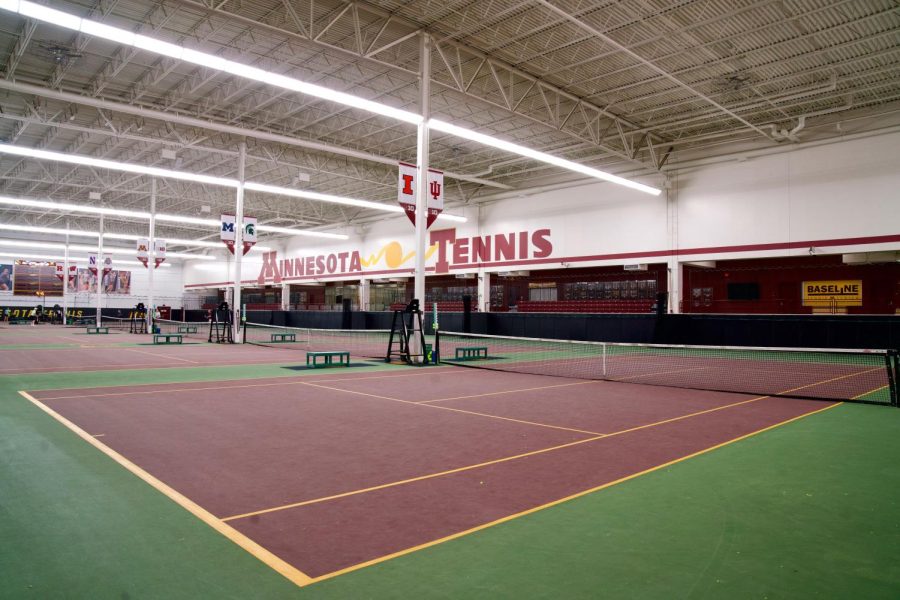University of Minnesota athletes testified in front of the Senate Higher Education Committee on Feb. 15 about the three men’s teams that were cut in 2020. Legislators expressed concerns about the University’s supplemental budget request as well as the Regents communication with stakeholders.
In fall 2020, the Board of Regents voted to cut the men’s gymnastics, men’s tennis and men’s indoor track and field teams because of finances and Title IX requirements, according to a statement from the University.
Since the decision, student athletes and alumni have been pushing for the board to reinstate the programs through letters and conversations with Athletics Director Mark Coyle, according to the testimony. They have also been independently raising money to continue involvement in their sport.
Testifiers said they were dissatisfied about the way the regents made the decision, saying the decision to cut three teams instead of four shortly before the meeting did not include input from athletes. They mentioned several times they did not feel like they had an adequate opportunity to be heard.
Legislators also shared their concerns about how the regents made the decision to cut sports, and publicly alluded that the lack of transparency could affect the University’s $936 million budget request.
During the House presentation, Rep. Marion O’Neill mentioned her concerns about the size of the request, especially because of the University’s decision to cut these teams for financial reasons.
“That was a bold, and may I say arrogant, ask when they are operating the way that they are with the lack of transparency, with the lack of answers back to the legislature,” O’Neill said in an interview with the Minnesota Daily.
Senators also said this was a valid concern, especially given the overall size of the University’s request coupled with their perceived lack of transparency.
“What this hearing brought out, and coupled with the [budget request] hearing and in regards to giving President Gabel her raise, it just seems like the Board of Regents and the administration is working in a vacuum,” Sen. Jason Rarick, co-chair of the Higher Education committee, said. “They’re not listening. They’re not taking outside input from students, from employees and from the people of Minnesota in general.”
At the hearing, Sen. Greg Clausen said based on his role in the regent selection process, that he hopes “they did a good job in thinking that [decision] through.” He said later in an interview with the Minnesota Daily that a takeaway from the hearing was the regents’ overall lack of communication.
University officials did not attend the hearing, saying in a statement the current lawsuit intending to reinstate the programs brought by a current student prevented them from commenting publicly on the matter. Senators confirmed this is typical practice when there is a pending lawsuit against certain parties.
Mike Linnemann, past Gopher track and field letterwinner and current alumni organizer, said the next steps lie with the legislature to create a state special commission to look into how the decision was made and how to improve college sports across the state.
Rarick said the legislature does not have the authority to tell the University what to do. Since the University has constitutional autonomy from the state, the state can give the University funds but cannot direct them to initiate any specific policies. Rarick said he is going to ask the regents to create the commission versus the legislature.
“I’m working right now on a letter asking the Board of Regents to put the commission together that look at not only these three programs, but of what the athletics department could be, and truly take a look at how we can change things and create more opportunities for a student athletes,” Rarick said.
Despite the lack of University support, University of Minnesota students are still participating in gymnastics, indoor track and field and tennis and say they will do so for a while.
“We’re going to continue to keep doing gymnastics,” said Ben Hays, a male gymnast and first-year student who attended the hearing. “Whether the University tells us we can be D1 or not, we’re still going to fight it until the very bitter end.”













